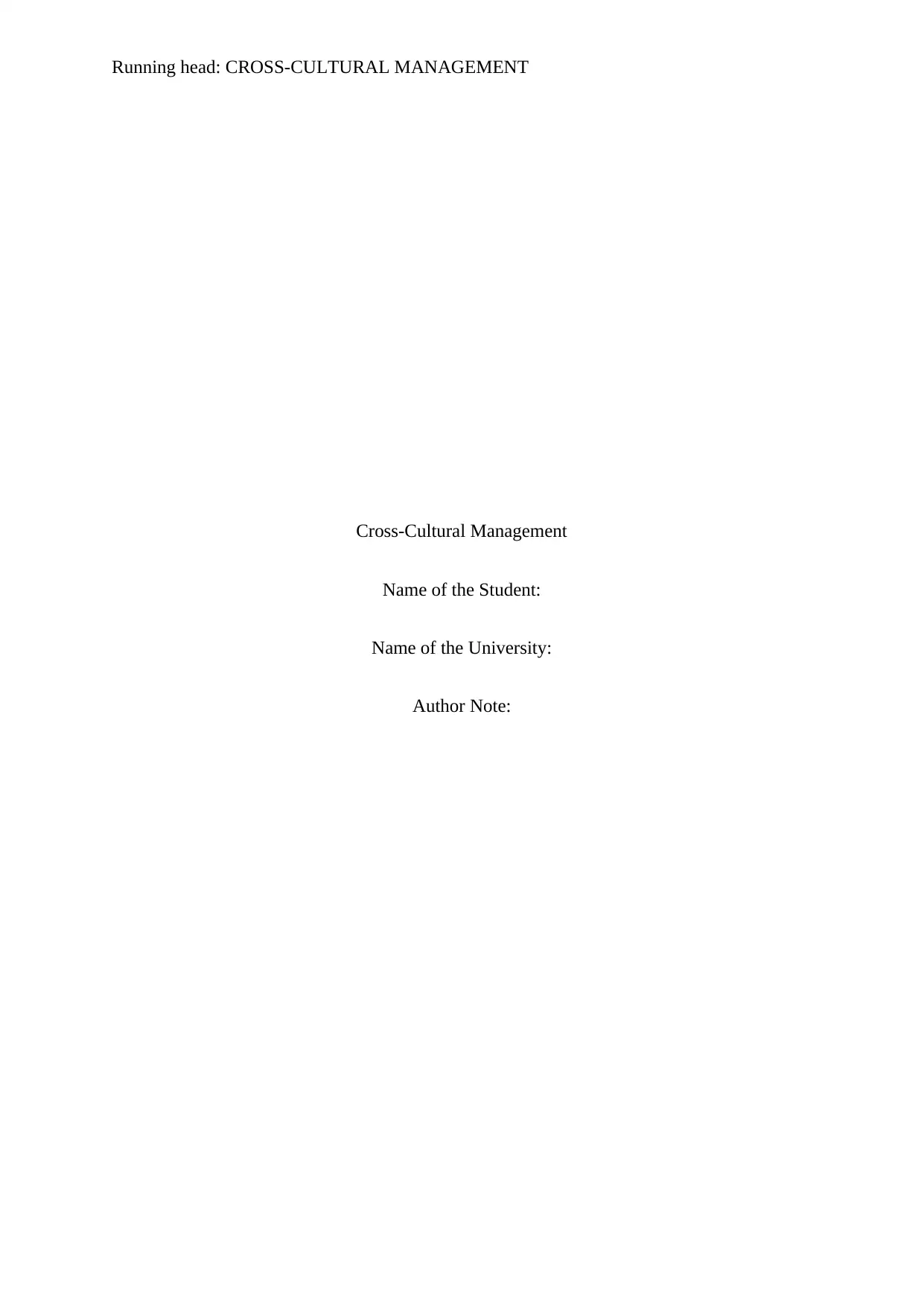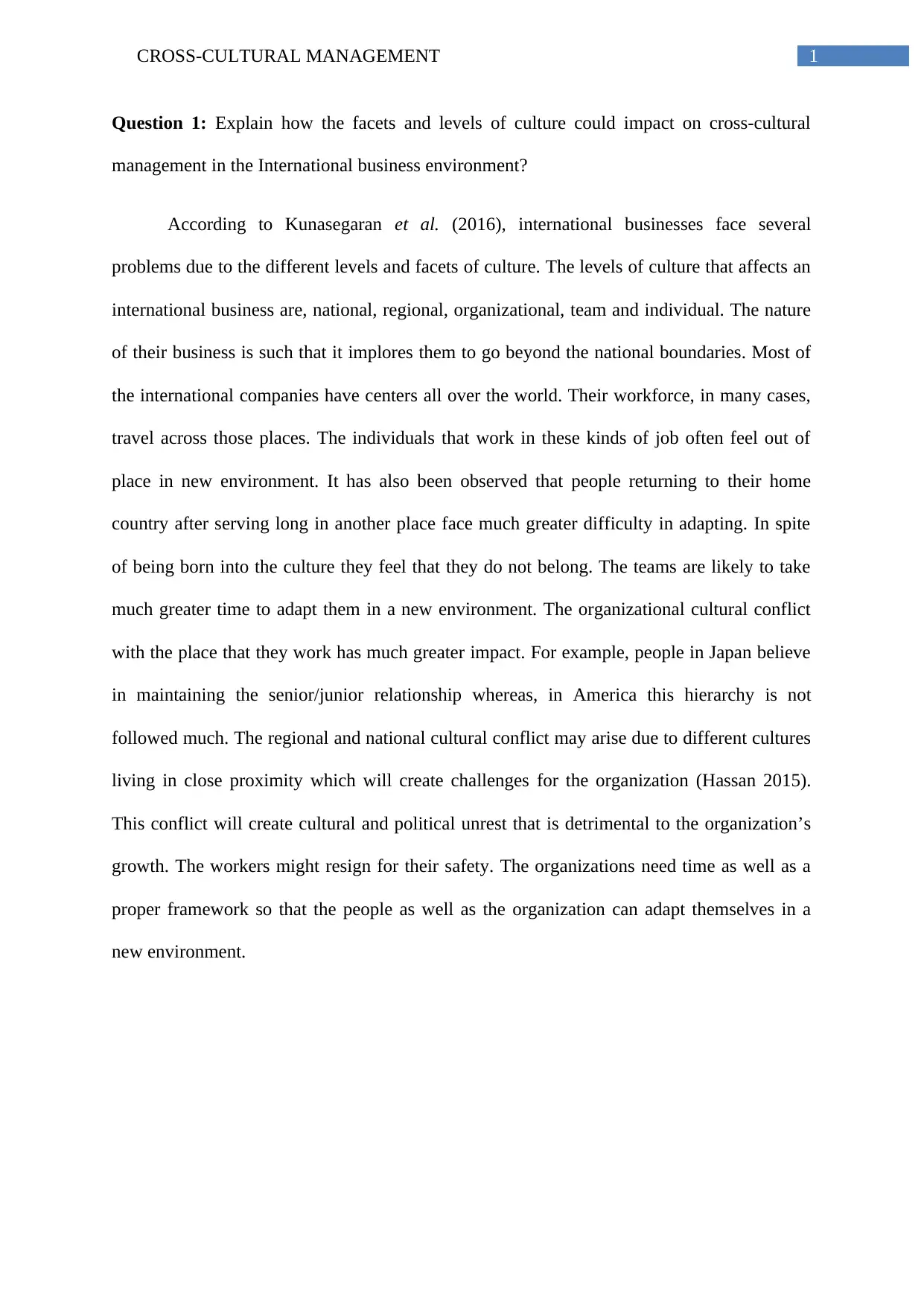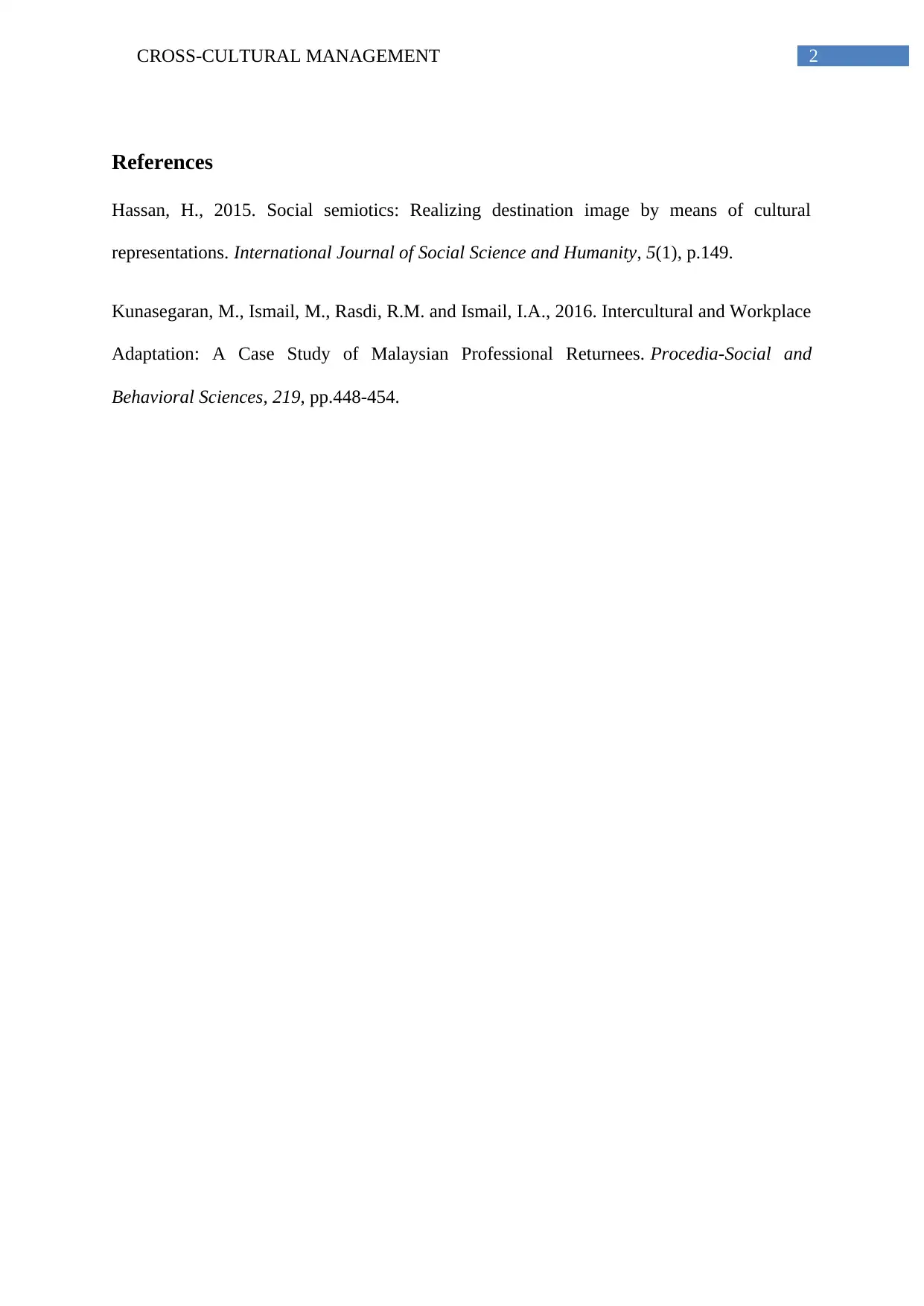University Cross-Cultural Management Report: IBS220, Semester 2
VerifiedAdded on 2022/09/16
|3
|405
|23
Report
AI Summary
This report, prepared for the IBS220 course, examines the influence of cultural facets and levels on cross-cultural management within the international business environment. It highlights the challenges faced by international companies due to cultural differences at national, regional, organizational, team, and individual levels. The report references research by Kunasegaran et al. (2016) and Hassan (2015) to illustrate how cultural conflicts can affect workforce adaptation, team dynamics, and organizational structures, particularly in scenarios where companies operate globally and employees experience relocation. The report emphasizes the need for organizations to understand and adapt to these cultural nuances to foster growth and stability. The student draws from the provided articles to explain the complexities of managing diverse cultural contexts and offers a concise overview of the key challenges involved.
1 out of 3










![[object Object]](/_next/static/media/star-bottom.7253800d.svg)